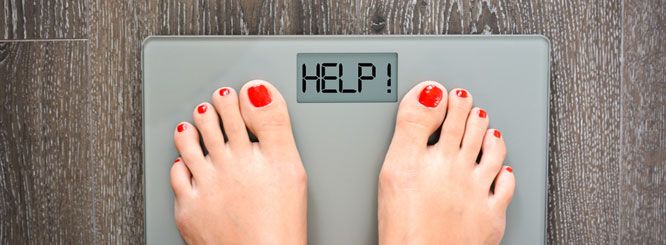
Your body will probably require some time to adjust to stopping birth control pills, regardless of how long you have been taking them—you might have been using them for only a few months or more. The symptoms you may encounter might range greatly, from drastically altered hormone levels to a monthly cycle that resembles the one you had before taking the pill [1].
Remember that only barrier contraceptives, like condoms, can shield you from STDs and that, after stopping taking the pill, you’ll need to use another method of birth control to prevent unintended pregnancy [1].
How birth control pills work
Contraception pills work to forestall pregnancy in a couple of ways:
- The chemicals in the pills can prevent your ovaries from delivering a full grown egg. This development of a full grown egg is called ovulation. You can’t become pregnant on the off chance that you don’t ovulate on the grounds that there’s no egg for sperm to prepare [2].
- The chemicals in both the mix pills and minipills make a development of bodily fluid on the covering of your cervix. This bodily fluid is tacky and can keep sperm from entering your cervix [2].
What happens to your body when after stoping taking the pill?
In the long run
Most people eventually feel better after stopping taking the pill, especially if they stopped because of side effects [4].
The benefits of your natural cycle will eventually become apparent when stopping the pill. The “period” you experienced while taking birth control was in fact a hormonal withdrawal bleed from the synthetic hormones in the birth control. Actually, the birth control completely turned off your “real” menstrual cycle. The birth control pills provided you with consistent doses of drug versions of those hormones rather than the monthly fluctuations that occur naturally in hormone levels [4].
- Natural progesterone
The progestins found in the pill, which are a synthetic form of the hormone progesterone, are not as beneficial as the real thing. Natural progesterone promotes libido, preserves skin, eases anxiety, lowers inflammation, and safeguards the brain [3].
- An additional vital sign
Because it indicates an individual’s underlying health status, the menstrual cycle is sometimes referred to as the “fifth vital sign” [3]. Periods of pain or difficulty are your body’s way of alerting you to an issue. It’s a potent window into your health because it may be the first (and occasionally the only) clear sign that something is wrong with your system [3].
In the short term
When stopping hormonal birth control, the short term is typically the most difficult. There may be symptoms after taking a pill, which can include:
- Restarting your period
Your body will naturally return to having periods at a time that is entirely unique and subjective. While most women get their period back in four weeks, some take up to several months to resume [1].
Your periods may be irregular for a while even if they do start right away, particularly if they were irregular before you started taking birth control. Before they even get their period, some women start to spotting, and others notice that their menstrual flow has changed in intensity or volume [1]. Your body should regain its regular rhythm and your periods should return to normal after a few menstrual cycles [2].
- Changes to your period
Most medical experts advise against stopping your birth control in the middle of your cycle. Rather, you ought to complete your pack rather than start a new one [2].
This facilitates your body’s easier transition back into its normal cycle. If stopping mid-pack, that is, before the time when you would typically get your period, it might take your body longer to return to its normal cycle [2].
Additionally, cramps and spotting may start as soon as two days after your last birth control pill if stopping in the middle of your cycle. Your body will rid itself of the birth control hormones in two days. Your cycle will attempt to restart once they’re gone [2]. The majority of symptoms that appear after stopping birth control in the middle of a pack are temporary [2].
Most people’s ovaries and menstrual cycle revert to “normal” (pre birth control) after 90 days of stopping birth control that contains estrogen and progestin. If someone started on birth control to get a lighter period, stopping it could cause their prior heavy period to come back. Moreover, if you took birth control to relieve your menstrual cramps, you will probably still get them throughout your period after stopping the birth control [3].
- Skin
Acne may be caused by a hormonal imbalance or fluctuation, which may provide additional reasons for using birth control. Birth control aids in reducing the body’s testosterone levels, which helps to heal acne breakouts. Upon discontinuing birth control and eliminating synthetic hormones from your body, the initial skin issues can resurface [3].
- Emotional Changes
You may experience sudden increases in libido when quitting birth control, so be ready for some shifts in your desire levels. Because hormonal birth control lowers libido in women, be mindful that stopping it could release those hormones once more [1].
Does Birth Control Make You Gain Weight?
Although there is little scientific evidence to back up the common belief that stopping birth control causes weight gain, some studies have even concluded that it is unlikely for hormonal birth control to cause any appreciable weight gain [5]. Any weight gain is usually more likely to be caused by other factors, like aging and dietary and activity changes [5]. Hormones may cause fluid retention or increased appetite in certain people, which explains any weight gains they may encounter.
It is improbable that the majority of birth control methods will significantly affect weight gain. Numerous studies have consistently demonstrated that hormonal birth control does not generally cause weight gain [5].
Weight gain was not associated with hormone dosage, according to a review of 45 studies looking at the effects of various hormonal birth control methods on weight gain. Furthermore, the study concludes that significant weight gain due to hormonal birth control is extremely unlikely [5].
Other Potential Reasons for Weight Gain
Since stopping birth control is usually not the cause of weight gain, it’s important to look into additional potential causes:
- Aging: Getting older can cause a number of changes that can have an impact on weight gain, making it a common cause of weight gain. For example, people start losing muscle every year when they reach middle age, which affects the rate at which calories are burned, which could end in weight gain [5].
- Dietary and activity changes: Diet and activity levels are important factors that influence weight gain. The primary cause of weight gain, according to the National Institutes of Health (NIH), is an imbalance between calories burned through physical activity and calories consumed [5].
- Lack of sleep: Lack of sleep can also result in weight gain. Research has shown that individuals who sleep less are more likely to be overweight or obese because of weight gain, in part because hormones released during sleep help regulate appetite and energy use [5].
- Some medical conditions: A few medical conditions, including Cushing syndrome, a thyroid that is not functioning properly, and polycystic ovarian syndrome (PCOS), can also cause weight gain [5].
- Medications: Weight gain has been linked to a number of medications, including antidepressants, certain corticosteroids, and medications for seizures [5].
Contact Us Today
Our team is ready to help you. At LIMARP, patients will always receive warm, sincere and professional answers. For a free evaluation please call us at (619) 270 8823, fill out a contact form at our website, or message through any of our social media pages.
References
- Interactive, B. (2020, September 8). What You Need to Know When Going Off the Pill. Walnut Hill OBGYN. https://walnuthillobgyn.com/blog/what-you-need-to-know-when-going-off-the-pill/
- Holland, K. (2019, March 8). What to Expect When Stopping Birth Control Mid Pack. Healthline. https://www.healthline.com/health/stopping-birth-control-mid-pack#reasons-for-stopping-mid-pack
- The Effects of Stopping Birth Control — Sexual Health Alliance. (2022, August 12). Sexual Health Alliance. https://sexualhealthalliance.com/nymphomedia-blog/the-effects-of-stopping-birth-control
- Ldn, C. M. R. (2021, July 16). Coming Off of Birth Control? Here’s Your Guide To Preventing Side Effects of Stopping Birth Control Pills. De Lune. https://www.delune.co/blogs/blog/coming-off-of-birth-control-here-s-your-guide-to-preventing-side-effects-of-stopping-birth-control-pills
- Stanek, B. (2023, November 7). Does Birth Control Make You Gain Weight? Forbes Health. https://www.forbes.com/health/womens-health/does-birth-control-make-you-gain-weight/


